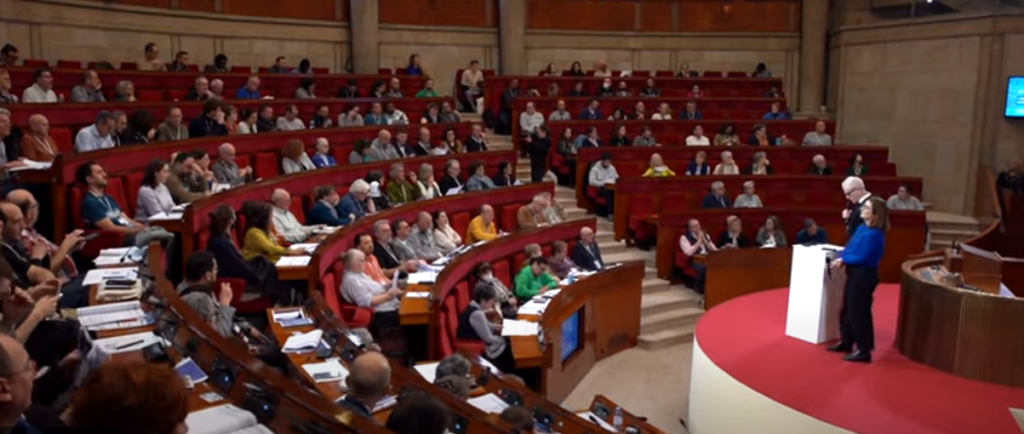Members of the Citizens’ Convention, chosen and convened to discuss whether or not to introduce euthanasia in France, presented their conclusions on end-of-life on Monday, April 3, at the Elysee Palace, at the invitation of French President Emmanuel Macron after six months of discussions. The previous day, April 2, the 184 members of the Citizens’ Convention on Assisted Dying released a document of more than 150 pages, containing 146 proposals. It was adopted after a 92% vote (162 out of 176 votes cast) in the hall of the Palais d’Iéna at the end of the last working session at the headquarters of the Economic, Social and Environmental Council (EESC). The report aims to present “a broad spectrum of views” and does not claim to provide an unambiguous view.
Back in September 2022, Macron decided to create a citizens’ convention, composed of 184 randomly selected members, to answer the question, “Is the end-of-life support framework adequate for the various situations encountered or should any changes be made?” The 184 members have been working on the issue since October and have heard from many experts on the subject, such as doctors, philosophers, caregivers and religious representatives. The debates concluded on Sunday and a report was published. About 97% of citizens responded that the current “support framework” should “evolve” in France. The first reason is “unequal access to end-of-life support,” and the second is “the lack of satisfactory responses in the current framework for some end-of-life situations.”
In France, the Claeys-Leonetti Act of 2016 authorizes “prolonged and continuous sedation” for patients with a short-term life-threatening condition. But it does not authorize active assistance in dying, such as euthanasia or assisted suicide, as may be the case in Belgium or Switzerland. Some 76% of Convention members support access to assisted suicide and euthanasia “under certain conditions and at the end of a marked path.” Active assistance in dying should be an option reserved for the terminally ill and those with intractable pain, the report says. The French Citizens’ Convention supports active assistance in dying using different models.
Unfortunately, the citizens who were part of the Convention did not want to listen to the appeal of the Catholic bishops gathered in Lourdes who have recently called on the French to commit themselves to the care of the sick respecting the value of life and fraternity. The people of the Convention did not even listen to the appeal and statement of the National Order of French Physicians who on April 2 published their document, approved unanimously and after nine months of consultation among all members, in which they oppose the participation of physicians in helping or causing the death of patients. In a press release, the council said it was “unfavorable” to doctors’ participation in “a process that would lead to euthanasia.” The Board believes that a physician cannot cause death by administering a lethal product. It also states in the preamble that it is “unfavorable to any possibility of establishing an active assistance in dying procedure for minors and persons incapable of expressing their will.”
However, in his speech on Monday morning meeting with the ‘conventionists,’ President Macron did nothing but give thanks, as if reason and ethical truth depend on sporadic majorities. Yet he also reminded the audience that Parliament cannot be replaced by the ‘convention’ even though, thanks to the favorable decision that emerged from the convention, the citizens who participated in the work have “brought to maturity this democratic innovation of the citizens’ convention.”
